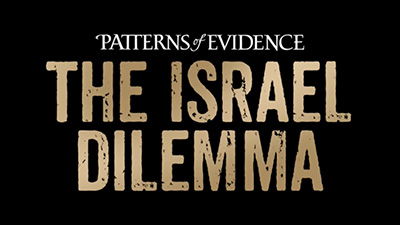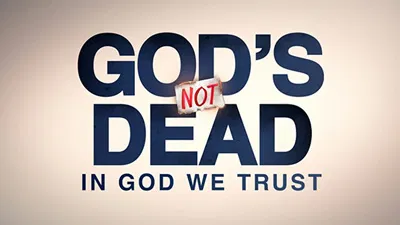
Staying Outside The Shack
[Spoiler Alert: This review reveals certain elements of the plot but only to the extent necessary to convey the positive elements and the concerns with the film.]
After 10 years, the best-selling novel by William Paul Young has become a major motion picture release. The Shack was a novel that stirred much controversy within evangelical circles when it was first published, and that has not changed with the movie. Major evangelical leaders have flown new flags of warning against the dangers in the film, but others have taken up the flag and championed the movie, buying blocks of tickets and encouraging their followers to see the movie. Outreach, an evangelical, nondenominational magazine that often features articles by many of the leading mega-church pastors, has published a sermon guide and other materials intended to help churches teach from the movie’s themes and engage their communities, hoping to bring people closer to God.
If the God found in The Shack is the one people choose to follow, I fear they face grave eternal danger.
As with any movie, The Shack offers an opportunity to engage with others in conversation around the themes that are presented. Whether pointing an unbeliever to the goodness of God or helping a fellow believer to find true freedom from guilt and shame, The Shack could open those conversations . . . but so could the Bible. And if the God found in The Shack is the one people choose to follow, I fear they face grave eternal danger.
The Novel’s Impact
When the novel was released in 2007, it quickly soared to 1 million copies, having crossed over 20 million worldwide at the release of the movie in 2017. Many people have claimed that the book helped them see God in a new light and turned them toward healing and forgiveness in their own lives. But scrolling through the comments in recent social media posts, you will find many self-proclaimed non-Christians making those same grand claims about the book, even as they reject the true nature of the God revealed in Scripture.
No doubt with the release of the film, many will pick up the book and read its story. In the book they will find much more detail about the views of God presented by Young. Even though the book is written as fiction and has a “fantastic side that doesn’t necessarily mean it is not true,” it is filled with false views of God. Indeed, the trio in the novel looks superficially like the God described in the Bible (i.e., there is a Father, Son, and Holy Spirit), but something different resides under the surface. In his lengthy and worthwhile review, Randy Alcorn, a fiction novelist himself, details some of those concerns. As to the content and style of the book, Alcorn says,
The story is largely the wrapper; the “truths” are what’s inside it. It’s hard to fall back on “Yeah, but it was just one of the characters saying that” when the character happens to be God.1
Reviews of the book from Tim Challies and Dr. Albert Mohler will also be helpful to anyone deciding whether they should see the movie. The basic plot finds Mackenzie Philips (Mack) facing much strife in his youth at the hands of his father, a closet drunk, domestic abuser, and elder at the church. Mack’s own father is a figure that pushes him away from God the Father that he learns about in church. Later in life, he faces a heart-wrenching tragedy while on a camping trip with his family. In the face of all of this hurt, Mack finds himself asking why God would allow such suffering—a question we all face and must be able to answer.
Through a mysterious note from “Papa,” Mack is led back to the shack in the woods where his daughter was murdered. Papa is the nickname his wife uses to refer to God. At the shack, Mack experiences a mystical invitation into a fanciful world where Jesus (appearing as a Middle Eastern man), Papa (appearing as a black woman), and Sarayu (representing the Holy Spirit and appearing as a young Asian lady) present themselves as the Godhead. They offer Mack a chance to find healing from his “great sadness,” but on his own terms and timing. What follows is a story of forgiveness and freedom from bitterness that brings Mack healing, not only for himself but also for his family.
From Pages to Pixels
The screen adaptation of the book follows the basic storyline, but has a few changes and leaves out some large sections, especially the ending of the book. Some of the clearly unorthodox elements presented in the book are softened by the shorter treatment in the film. Sections of dialog and inner thought are presented in short snippets that don’t really flesh out the full thinking of Young’s views about God.
The film presents ideas that are shrouded in maybes and not-what-you-think comments, rather than the clear proclamations that God makes about Himself in the Bible.
The film presents ideas that are shrouded in maybes and not-what-you-think comments, rather than the clear proclamations that God makes about Himself in the Bible. Papa, Jesus, and Sarayu often ask questions back to Mack, challenging the things he believes about them. While this mirrors the technique Jesus often employed in the Gospels, we know that Jesus spoke truth. Whether or not the conclusions Mack comes to in the film and those ideas presented by Papa and the others are in line with the truths revealed about God in Scripture is a question of great importance. As with any truth claim, we should be sure to compare what we hear about God to what God has plainly revealed about Himself.
This transfer from letters on a page, as we have in the Bible, to images on a screen presents a particular challenge. How do you represent the Godhead without violating God’s prohibitions against such images? The first three commandments delivered by God to the Israelites warn against false representations and false worship. Though there has been disagreement throughout the ages over such representations, the movie’s presentation of God the Father as a woman is problematic because in Scripture the Father is declared to be a spirit and presented in masculine ways. Additionally, Sarayu represents the Holy Spirit. While the Spirit does appear in the form of a dove and as tongues of fire in Scripture, He never appears as a physical human being and is referred to with masculine pronouns. While we may differ on which passages to look at as support, all orthodox Christians should affirm that presenting the Trinity as three human forms, especially the Father and Spirit as a female, is blasphemous.2 As discussed below, there are other aspects to consider about these problems with the representation of God.
Positive Elements
Because Young approaches his ideas from the viewpoint of a confessing Christian, there are many biblically consistent statements as well as allusions in the film. The three characters are presented as distinct persons, but each affirms his or her connection to I AM. At one point, Papa jokingly says, “I am, that I AM” in response to Mack. The title Almighty God is used in several cases, and all three reply “I AM” in unison to Mack. There is little reason to doubt that a Trinitarian concept of God is presented in the film (with one exception I will note below), but there was doubt raised in the book regarding the eternal generation of the Son.
The brokenness in the world is said to extend all the way back to Adam through all humanity.
At several points, the omniscience, omnipotence, and omnipresence of God is affirmed by the characters. The theme of God’s love is clearly communicated many times during the film. The brokenness in the world is said to extend all the way back to Adam through all humanity. Unforgiveness and bitterness are presented as emotions that block humans from experiencing the joy and relationships God intended for them. Relationships between humans are described as costly but worthwhile. Jesus is acknowledged as the creator of the stars, and the idea that God created the entire universe and sustains it is presented several times.
Questionable Elements
The book raised questions as to whether Young believed in a universal salvation for all people, based on the very inclusive language used by Papa and others. The film has hints of this as Papa expresses fondness for all people and says “she” loves all of “her” children. Another scene presents people in heaven as spirits from every tribe, tongue, nation, and people, though how they arrived in that state is not made clear. Even Mack’s father is among the group, raising the question, though unanswered, of how he got there. Coupled with the other claims in the film, at the least, an inclusive view of salvation where all will eventually be saved is left open.3
Man’s free will is set up as the ultimate expression of God’s desire for mankind. Without free will, the film asserts, it is not possible to love and to forgive. This idea is expressed many times in the film. Depending on your understanding of this doctrine, you will either find it edifying or terribly frustrating.4
Substitution is presented as the way that Papa can have a relationship with people even though they are sinful, but it is a cloudy idea in the film. The Cross is discussed, but exactly what was accomplished is unclear. Papa tells Mack that truth sets everyone free, and that truth is in the woodshop (referring to the Jesus character who was working on a project). What is meant by this is left open, and there is no discussion of atonement at all. The orthodox view of penal substitutionary atonement is clearly set aside for some novel view of the meaning of Jesus as our substitute.
Mack is called to let go of his bitterness and hatred toward those who have hurt him. Papa acknowledges that this is a process that will take time and get easier. But Mack is called to forgive his daughter’s murderer without the murderer ever seeking for that forgiveness. But is this the biblical model of forgiveness? Though we must show love toward those who have sinned against us, Christians differ on exactly how forgiveness is extended in various situations. According to Jesus, forgiveness is a two-way transaction, not something we can extend on our own (Luke 17:3–4; Matthew 18:15–17). This parallels the way we are forgiven by God—we come to Him in repentance, seeking His forgiveness (1 John 1:8–9), and He is pleased to grant it because Jesus died in our place so that we can be forgiven (2 Corinthians 5:20–21). But other passages don’t explicitly mention the condition of asking for forgiveness, leading some to conclude that forgiveness can be granted without confession/repentance (Matthew 6:14–15).
Regardless of how we see the transaction of forgiveness (i.e., the act of giving and receiving forgiveness in interpersonal relationship), we should always be ready to forgive and have an attitude of forgiveness knowing how much we have been forgiven in Christ. Whether forgiveness can be granted without the offender seeking repentance is a topic each Christian must look to the Bible to understand. There should be no room in the Christian’s heart for clinging to anger and allowing bitterness to fester toward those who sin against us or toward God (because He did or didn’t do what we expected or hoped or asked). Vengeance belongs to God, and we must trust His justice through the gospel to prevail rather than our own idea of justice (Romans 12:19–21). 5
Heterodox Elements
Many subtle and overt statements in the film promote ideas that cross the lines of orthodoxy, leading the viewer to think of God in terms other than He has presented Himself in Scripture. Experience trumps revealed truth in many of the explanations offered by the film. Consider the following examples.
Putting Words in God’s Mouth
The film draws on many biblical allusions and phrases, but often puts the words and thoughts of the author into God’s mouth. This is a very serious task, and one that can lead only to misrepresenting God. Because Young makes Papa, Jesus, and Sarayu say things that God never said, he crosses a line that should not be crossed. (See the examples quoted throughout this article.)
Love vs. Wrath
When Mack questions Papa about where she was when his daughter was murdered, she says she was right there with her. She then extends this to being with her son while he was on the cross. To make this point clear to Mack, she shows him the nail scar in her wrist and tells him that she never left his side. In contrast, while Jesus was on the Cross He quoted from Psalm 22, asking the Father why He had forsaken His Son. While we must deny that there was any division in the Trinity at this point, it is clear that in some sense God was “separated” from His Son as He became the sin-bearer. Isaiah 53 describes how Jesus bore the wrath of the Father for sin, going so far as to say that it pleased the Lord to crush the Son. But this is because God’s justice must be satisfied. While Papa is portrayed as loving, justice seems to be questioned as an idea mankind applies to God. Papa is equally fond of everyone, regardless of their actions. When Mack brings up her wrath, Papa replies, “Wrath? You lost me there.” Here the Papa of The Shack is surely not the God of the Bible. In fact, portraying the Father as suffering alongside the Son (known as patripassianism) was condemned as heresy in the early church because it was connected with modalism (denying that God is one essence but three distinct co-equal persons and saying rather that God merely revealed Himself in three modes or forms).
The god of The Shack is not interested in justice in an ultimate sense.
Further developing this point, Papa downplays sin, telling Mack that she doesn’t “need to punish people—sin is its own punishment.” In another scene where Mack is challenged regarding his thinking of Papa as judge, the concept of hell is brought up. But the real sense of the scene is that no one will be punished for their sins in hell—even murderers and abusers—because Papa loves them just as Mack does his own children. To deny that God is just removes the concept of atonement and removes the need for a Savior to die in our place. Though the film hints at Jesus’s substitutionary death to pay for sin, it does so in an unbiblical and inconsistent way. The god of The Shack is not interested in justice in an ultimate sense.
In another scene, the Jesus character tells Mack that “religion is way too much work,” and that he wants friends not slaves. He goes on to say that “Christian” is a title he is not crazy about. He only wants all people, regardless of their religious expression, to be changed by Papa and know what it means to be truly loved.
Immanence vs. Transcendence
Papa is a term that we do not find in the Bible, but is often connected to the Aramaic Abba. While many have heard and taught that this term is what a young child would call their father, the equivalent of daddy today, that claim has no historical proof.6
While we must not deny that God is our loving Father, as Jesus so clearly modeled for us, that is not all that He is. In the film, Papa expresses only love and has no room for wrath, justice, or holiness. While taking the first, apparently delicious, bite of a meal prepared by Papa, Mack exclaims, “Oh my God!” then quickly apologizes, thinking he had been irreverent. Papa laughs it off and excuses what Mack thought would be a sin.
Overall, the goodness of God is set as the ultimate attribute, taking up any room for God’s holiness and transcendence. This is not the response we see from Ezekiel, Isaiah, and John when they find themselves in the presence of Yahweh. In this, the Papa of The Shack cannot be equated with the God of the Bible. Papa is in fact a serious distortion of the God revealed in Scripture. Papa does not demand reverence, only endearment. The Jesus character assures Mack that people “are the center of our love and purpose.” Scripture tells us that we are loved and made in God’s image, but God’s glory is His ultimate purpose. Isaiah 42:8 says, “I am the Lord, that is My name; And My glory I will not give to another,” and Isaiah 48:11 says, “For My own sake, for My own sake, I will do it; For how should My name be profaned? And I will not give My glory to another.”
Justifying God
The moral argument of justifying a good God in a world filled with evil is called a theodicy. This is one of the major themes of this film, yet it is left entirely undeveloped. While there is a clear affirmation that evil in the world is a result of man and that the brokenness extends back to Adam, Papa’s relationship to evil is left in an unbiblical position. There is no description of a perfect creation corrupted by Satan’s influence and Adam’s sin. Mack’s daughter’s death is blamed on evil that results from Papa giving man free will. Mack has experienced real suffering, and his story, as we see it in the lives of others around us, should evoke real compassion. (Read about the biblical explanation for death and suffering in “Why Does God’s Creation Include Death and Suffering?” by Dr. Tommy Mitchell.) The explanation in the film is incomplete, though the filmmakers may have purposefully left it so.
Male or Female
While Papa appears as a woman to Mack as a boy and later at the shack, Papa also appears as a man. While Mack expected Papa to be in a white beard rather than a dress, Papa didn’t think Mack could relate to her as a father. Knowing what Mack endured from his earthly father, Papa appeals to Mack as a loving mother—something we never see of God in Scripture. When Mack has to face a tough day of confronting his bitterness and refusal to forgive, Papa appears as an older man. While God has many characteristics, to say that He cannot be loving and endearing as a Father is to deny the power of the Holy Spirit to work in people’s hearts, making the truth of Scripture real to them. God is not male or female in a physical sense, but He does relate to us in ways that are endearing, even as He calls Himself our Father, a rather endearing term when we consider His holiness and that He is the Creator of the universe.
Conclusion
If you draw close to the Papa of The Shack, you will be drawing close to a false god who does not line up with the Yahweh of the Bible. Randy Alcorn notes,
But I fear some readers (not all, by any means) may feel closer to a God who is different than the God revealed in Scripture. My concern is for those who think they are coming closer to God, when they may actually be altering the biblical revelation of God into a form that is more pleasant to them because He seems less holy and fearsome. If that’s the case, then they’re not closer to God at all, just closer to a false God, an idol constructed in the image of our contemporary need for acceptance, and forged by our resistance to repentance, submission, and accountability.7
If you rely on the Bible for determining what is true, The Shack will leave you disturbed, though not unmoved by the hope of love, healing, and forgiveness found in God.
For me, this is a question of whether the Papa, Jesus, and Sarayu trio of The Shack is a good representation of the triune Godhead of the Bible. If you rely on personal experience for determining what is true, The Shack will be very appealing. If you rely on the Bible for determining what is true, The Shack will leave you disturbed, though not unmoved by the hope of love, healing, and forgiveness found in God. You will find distorted shadows of the true God in the pages and scenes of The Shack, but you will not find Him in His full, Triune glory. That can only be found in the pages of Scripture. Only that God can truly heal the wounded heart and satisfy the longings of the soul.
Footnotes
- Randy Alcorn, “Reflections on The Shack,” Eternal Perspective Ministries, September 26, 2012, http://www.epm.org/resources/2012/Sep/26/reflections-shack/.
- While there are many anthropomorphic terms in the Bible that describe God as having human characteristics (e.g., the hand of the Lord and the eyes of the Lord.), God the Father and the Holy Spirit are indeed spirit. They have no form. Jesus, having taken on flesh, does have a human form since the Incarnation. To misrepresent God in any way is blasphemy.
- Randy Alcorn discusses this theme, including conversations he had with the author, in “The Shack: Biblical Discernment Is Key in Evaluating Any Book or Movie,” Eternal Perspectives Ministries, February 20, 2017, http://www.epm.org/blog/2017/Feb/20/shack-movie-book-discernment.
- The doctrine of free will and its relationship to God’s choice is an issue of debate, typically drawn along lines of Calvinistic and Arminian belief systems. Answers in Genesis does not take a position on this issue, but it is an important consideration when discussing the idea of the presence of evil in the world.
- The original posting of this article did not adequately convey what I was trying to say on this point and featured one side of this topic. It has been adjusted to reflect various positions on exactly how forgiveness is applied in the case of an unrepentant offender.
- Glenn Stanton, “FactChecker: Does ‘Abba’ Mean ‘Daddy’?,” The Gospel Coalition, May 13, 2013, https://www.thegospelcoalition.org/article/factchecker-does-abba-mean-daddy.
- Randy Alcorn, “Reflections on The Shack.”
Recommended Resources

Answers in Genesis is an apologetics ministry, dedicated to helping Christians defend their faith and proclaim the good news of Jesus Christ.
- Customer Service 800.778.3390
- Available Monday–Friday | 9 AM–5 PM ET
- © 2026 Answers in Genesis





